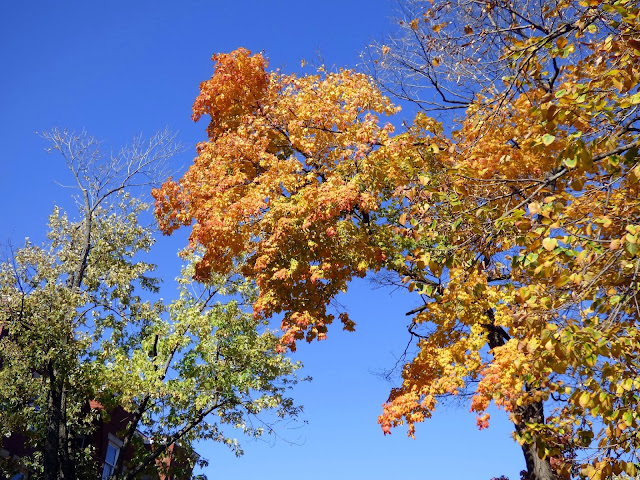I'm not much of a weeper. I never have been, actually. I cried a lot as a child but it didn't get me anywhere so I gave it up. As a teenager I hardened my heart and decided to be a cynic. I worked that scenario for a number of years. It was ill-fitting, me as a cynic. I tried so hard, but it rang false and was exhausting.
I was well into year three of psychotherapy before I wept during a session. My therapist seemed quite relieved when I finally cried. Maybe I was, too. I can't remember.
Since menopause, I cry even less often, but oh man I've been weeping like a professional the last couple of days. Grieving is heinous work. The small part of my mind that's rational is wondering why the hell I'm so moved to think of my relatives from that time and place, people I never met, who lived in a world I honestly can not imagine. Is it healing? I hope so.
I read about Kremenets today. Oh my. There were 14,000 Jews in the town. Only 14 survived the Holocaust. It's inconceivable. Kremenets was close enough to my family's tiny hamlet of Vzysgorodek that the memories of both places are contained in one Yizkor book.
So, all that. And I wonder that I'm grieving? Good lord.
My ancestors were country people. Even though Vzysgorodek was within a few kilometers of Kremenets, in those days, 10 or 15 kilometers was a long ways away. You can't even really call Vzysgorodek a village, more like a hamlet. It was tiny.
At the Holocaust Museum library, I was shown a business directory from 1920. The Melikiers were bakers, dairy people and also
skori, leather workers. They made clothing but also decorative boxes and other artsy stuff. The Melikiers got their hands dirty, they surely did. They were not sophisticated city people. Country people are earthy; there is no other choice. I've always imagined these ancestors as learned and erudite -- also judgmental. But I might be wrong about that.
Maybe my ancestors were more into the rhythm of Judaism than every last little rule and law. Maybe they didn't care so much. Maybe when they observed Shabbat, for instance, they just relaxed and had fun. I'm sure they said the prayers but maybe not with the orthodox fervor I imagine.
I met plenty of people at Temple Micah who knew all the prayers and songs in Hebrew, but had no clue what they were singing. I found and still find that so weird. They were praying but didn't care what they were saying? What?
I don't know every word of every prayer. They're beautiful texts, but that's not the part of Judaism I love. It's the rhythm of the faith that resonates. I really get, at a deep level, the point of starting a holiday at sunset - for instance. Pray for awhile, but then feast, drink red wine, enjoy, talk, argue, sing songs. Time enough to get serious and pray the following morning. I am way into the liturgy of feasting, drinking red wine and singing after sunset. Oh yeah. It weaves the energy of the people celebrating into a festive, happy web. A feast smoothes the way for spiritual observance.
The holidays, the rhythms, of my tribe are a part of my DNA. Even when I was far away from Judaism, I knew when the High Holy Days had arrived. I could feel it. I grok the strong arm and outstretched hand of God at Passover, I get the journey through the desert. The plagues and having to have the shit scared out of you to break free of the old enslavements? Oh yeah. The High Holy days - taking a week to reflect and complete the work of the year just passed - feels right in my blood, in my bones.
Perhaps we have common ground in the feasting, the
joie de vivre, the intensity of the holidays. Maybe the rhythms of the seasons and the gatherings to observe the turning wheel of the year is something they felt in their bones and blood, too.
Am I imagining
Fiddler on the Roof? I have no idea.
I'm trying to relate to these people who lived in a place and at a moment in history I cannot imagine. It boggles the mind, even my mind, with my famous imagination. But I have to try. Don't ask me why, but I must try. I'm trying!
Shalom.


































